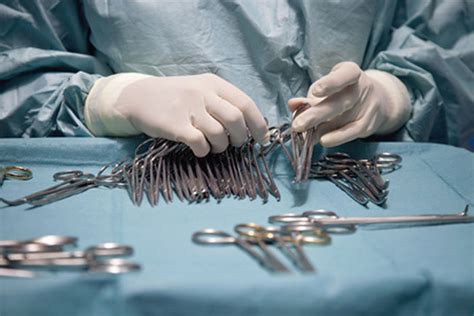Are you fascinated by the intricate workings of the human eye and passionate about helping others see the world more clearly? A career as a surgical tech in ophthalmology may be the perfect fit for you. As a vital member of the eye care team, you'll play a crucial role in ensuring that surgical procedures run smoothly and patients receive the best possible care. In this article, we'll delve into the world of surgical tech ophthalmology, exploring the career guide, job outlook, and what it takes to succeed in this exciting field.
What is a Surgical Tech in Ophthalmology?
A surgical technologist, also known as an operating room technician, is a healthcare professional responsible for preparing operating rooms, equipment, and patients for surgical procedures. In the field of ophthalmology, surgical techs specialize in assisting surgeons and other medical professionals during eye surgeries. Their primary duties include:
- Preparing patients for surgery, including cleaning and disinfecting the area around the eye
- Setting up and maintaining surgical equipment, such as microscopes and lasers
- Assisting the surgeon during procedures, including handing instruments and maintaining a sterile environment
- Monitoring patients' vital signs and ensuring their comfort during surgery
- Maintaining accurate records of surgical procedures and patient information

Career Guide: Becoming a Surgical Tech in Ophthalmology
To become a surgical tech in ophthalmology, you'll need to complete the following steps:
- Earn a High School Diploma or Equivalent: A high school diploma or equivalent is the minimum educational requirement for this career.
- Complete a Surgical Technologist Program: You can earn a certificate, diploma, or associate's degree in surgical technology from a community college or vocational school. These programs typically last one to two years and include both classroom and clinical training.
- Get Certified: While certification is not always required, it's highly recommended. The National Board of Surgical Technology and Surgical Assisting (NBSTSA) offers the Certified Surgical Technologist (CST) credential.
- Gain Experience: Most employers require surgical techs to have at least one year of experience in the field. You can gain experience by interning or volunteering at hospitals or eye clinics.
- Specialize in Ophthalmology: Once you've gained experience as a surgical tech, you can pursue specialization in ophthalmology by working in an eye clinic or hospital and gaining experience in ophthalmic procedures.
Job Outlook: The Future of Surgical Tech Ophthalmology
The demand for surgical techs in ophthalmology is expected to grow due to the increasing need for eye care services. According to the Bureau of Labor Statistics (BLS), employment of surgical technologists is projected to grow 3% from 2020 to 2030, which is slower than the average for all occupations. However, the BLS also notes that the need for ophthalmic surgical techs may be higher due to the aging population and the increasing prevalence of eye diseases.

Work Environment: What to Expect
As a surgical tech in ophthalmology, you'll work in a fast-paced, dynamic environment that requires attention to detail and excellent communication skills. You'll spend most of your time in the operating room, working closely with surgeons, anesthesiologists, and other medical professionals. You may also work in eye clinics, hospitals, or ambulatory surgery centers.
Skills and Qualities: What It Takes to Succeed
To succeed as a surgical tech in ophthalmology, you'll need:
- Attention to detail: You'll need to maintain a sterile environment and ensure that all equipment is functioning properly.
- Excellent communication skills: You'll work closely with surgeons, anesthesiologists, and other medical professionals, so clear communication is essential.
- Physical stamina: You'll spend long hours on your feet and may be required to lift heavy equipment.
- Emotional stability: You'll work in a high-pressure environment, so you'll need to remain calm and composed under stress.
- Continuous learning: You'll need to stay up-to-date with the latest technologies and techniques in ophthalmology.
Specialized Training and Certifications
While certification is not always required, it's highly recommended for surgical techs in ophthalmology. The National Board of Surgical Technology and Surgical Assisting (NBSTSA) offers the Certified Surgical Technologist (CST) credential. Additionally, the International Council of Ophthalmology (ICO) offers specialized training and certification programs for ophthalmic surgical techs.

Salary and Benefits: What to Expect
The salary for surgical techs in ophthalmology varies depending on location, experience, and employer. According to the BLS, the median annual salary for surgical technologists was $48,330 in May 2020. Benefits may include health insurance, paid time off, and retirement plans.
Conclusion: A Rewarding Career in Surgical Tech Ophthalmology
A career as a surgical tech in ophthalmology offers a unique combination of technical skills, patient care, and personal satisfaction. By following the career guide and job outlook outlined in this article, you can set yourself up for success in this exciting field. Remember to stay focused, keep learning, and always prioritize patient care.
Gallery of Ophthalmology Surgical Tech Images






FAQs
What is the average salary for a surgical tech in ophthalmology?
+The average salary for a surgical tech in ophthalmology varies depending on location, experience, and employer. According to the BLS, the median annual salary for surgical technologists was $48,330 in May 2020.
What kind of training do I need to become a surgical tech in ophthalmology?
+To become a surgical tech in ophthalmology, you'll need to complete a surgical technologist program and gain experience in the field. Specialized training and certification programs are also available.
What are the job prospects for surgical techs in ophthalmology?
+The demand for surgical techs in ophthalmology is expected to grow due to the increasing need for eye care services. According to the BLS, employment of surgical technologists is projected to grow 3% from 2020 to 2030.
